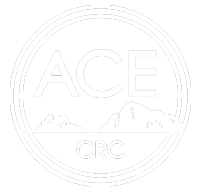Message from the CEO
It really is time to stop shooting the messenger and get serious about climate change science.
The Australian Academy of Science recently released its report on the science of climate change, The Science of Climate Change: Questions and Answers(http://www.science.org.au/news/index.html ). Not known for alarmist posturing, the Academy has stated clearly that the earth is changing because of climate change and that the changes in climate observed over the past century are due in large part to greenhouse gas emissions from human activity.
These conclusions should not come as a surprise as they reflect the consensus of opinion in the broad community of climate scientists around the world. What is a surprise is that so much recent discussion, coverage and emphasis in the media has focussed on challenges to this consensus - as if it were a contest of ideas more akin to politics than to the disciplines of science.
The Academy’s report is very much at the ’conservative’ end of the ongoing discussions in scientific circles about the rapidity and extent of climate change, but its conclusions are unequivocal: ’ the overall upward trend of average global temperature over the last century is clear’; ’climate models estimate that, by 2100, the average global temperature will be between 2 degrees C and 7 degrees C higher than pre-industrial temperatures’; ’Australia’s climate has changed along with global climate’; ’human activities are increasing greenhouse gas levels in the atmosphere’; ’it is very likely that most of the recent observed global warming is caused by this increase in greenhouse gases’; and ’reduction of greenhouse gas emissions could significantly reduce long-term warming’.
The Academy has gone to great lengths to objectively present the data and conclusions in its report and to address some of the counter-claims of the so-called ’climate sceptics’ about the veracity of the data used by climate scientists, and the usefulness of climate models. The Australian Academy of Science’s report comes to similar conclusions to others from learned academies in the Unites States and Britain: that is, climate change is real and we are responsible.
What is less certain is how much effort is needed to manage climate change. The Academy makes a sobering assessment of the effort required to prevent global average temperature rising more than 2 degrees C above pre-industrial temperatures: ’¼the world would need to be emitting less than half the amount of carbon dioxide by 2050 than it did in 2000. To do this on a smooth pathway, global emissions would need to peak within the next 10 years then decline rapidly’. The corollary of this statement is that the longer it takes the world to begin to curb greenhouse gas emissions, the harder it will be to reach a target.
Meanwhile, over the ditch in New Zealand, one of our partners in ACE, NIWA - the National Institute for Water and Atmosphere - is being taken to court by anti-climate change activists who are challenging the validity of its analyses of New Zealand’s temperature records and seeking to restrain NIWA from providing its data to international organisations.
The Academy’s report should be used to provide a benchmark for future open discussion of climate change in Australia. We should move on from a hollow debate about whether climate change is real or not. We should now be marshalling our scientific efforts in three broad areas. First, we need to understand the evolving climate and its major drivers, and the changes that are occurring in the oceans, on land, in the atmosphere and to the great ice sheets of Antarctica and Greenland. Knowing the trajectories for global temperature, sea level rise, storage of carbon and impacts on natural systems and agriculture all depend on better understanding the global climate system. Second, we need to have the tools to adapt to climate change in all areas of human endeavour. Third, we need to find the best ways, and the will, to mitigate greenhouse gas emissions.
Australian scientists have a unique role to play in climate change science. Australia is a wealthy southern hemisphere country with a strong reputation for doing world class climate research. Our scientists have well developed international networks and collaborations. We could not be better placed to produce the scientific effort required to answer some of the challenges of climate change, and the work of the ACE CRC will play a crucial role in this effort.
As we look forward to the 5 th Assessment Report of the IPCC we should recognise the important contributions scientists from the ACE CRC will be making: Stephen Rintoul will be a Coordinating Lead Author on the Oceans cha pter, and Shigeru Aoki (Japan) will be a Lead Author; Nathan Bindoff will be a Coordinating Lead Author for the Detection and Attribution of Climate Change chapter; and John Church (formerly ACE CRC Program Leader, now an ACE CRC Honorary Research Fellow) a Coordinating Lead Author for Sea Level Change; Ian Allison (formerly ACE CRC Program Leader, now an ACE CRC Honorary Research Fellow) will be a Lead Author for the Cryosphere chapter; and Kurt Lambeck (formerly ACE CRC) will be a lead author for Paleoclimate. That list does not take into account the considerable contributions that ACE scientists will make to the IPCC 5th Assessment report through the peer review literature, and as contributing authors.






















